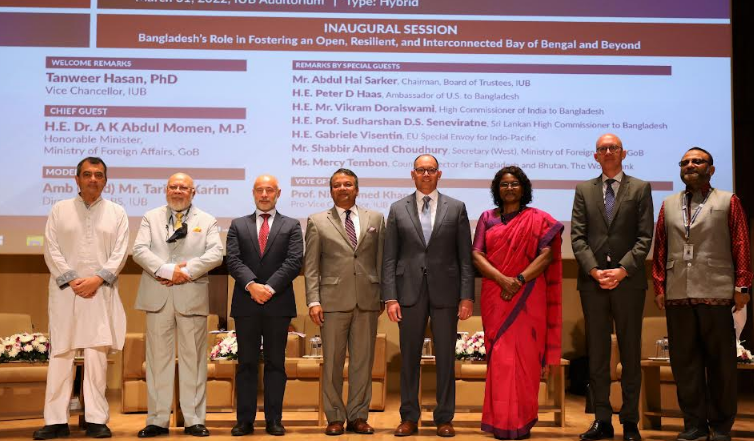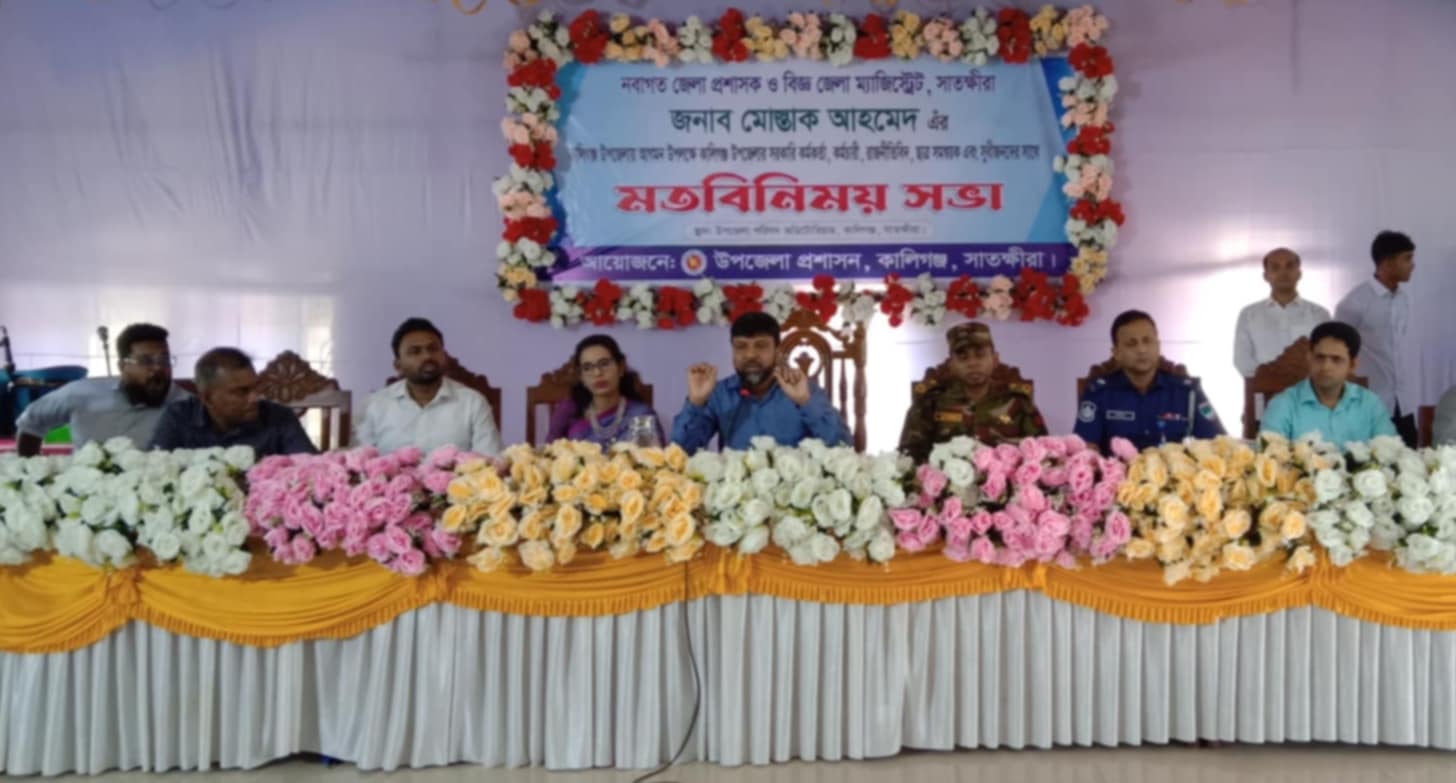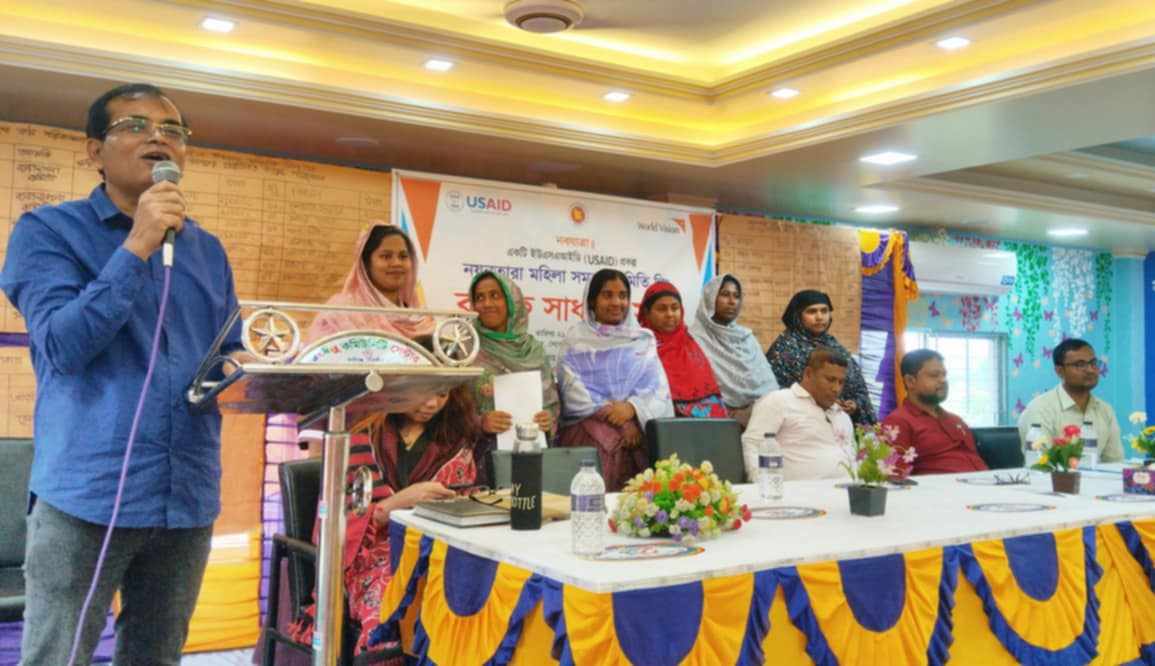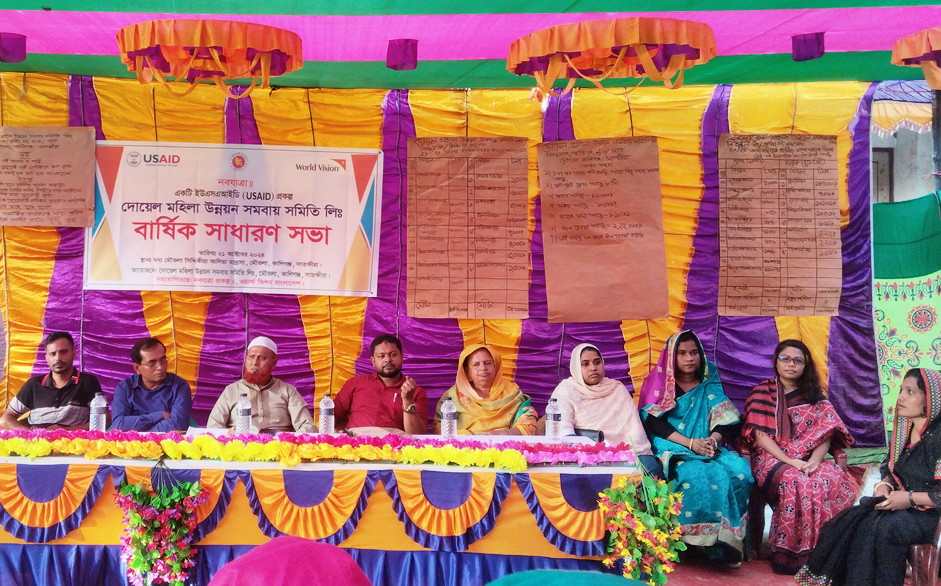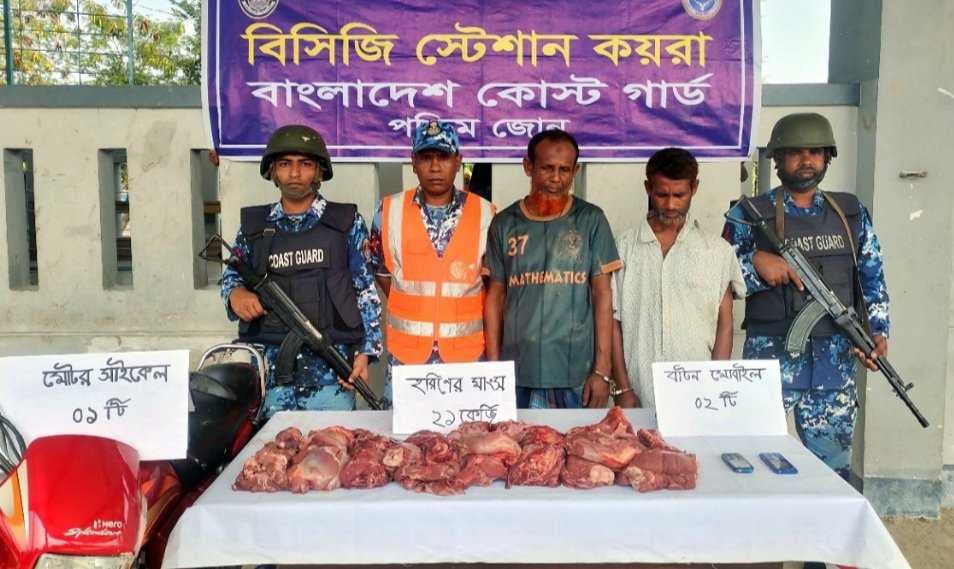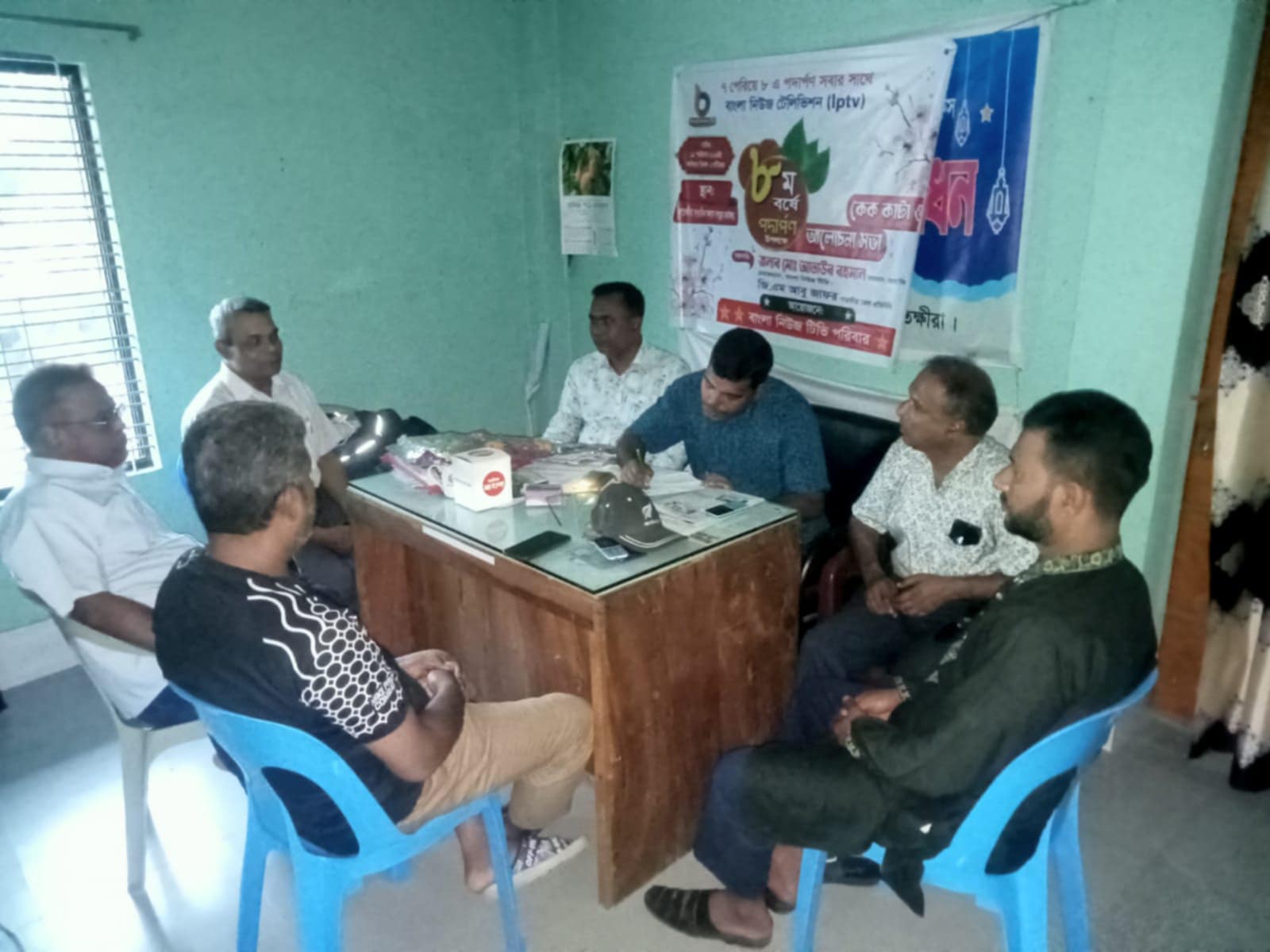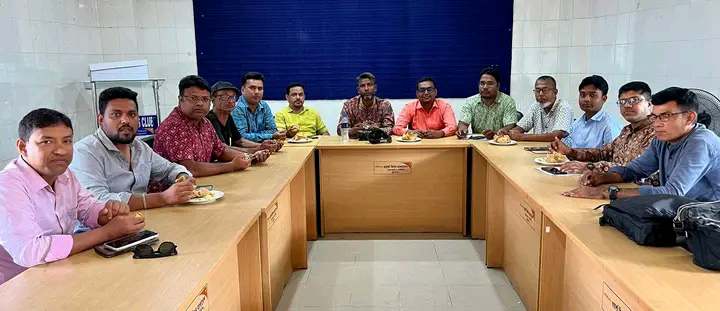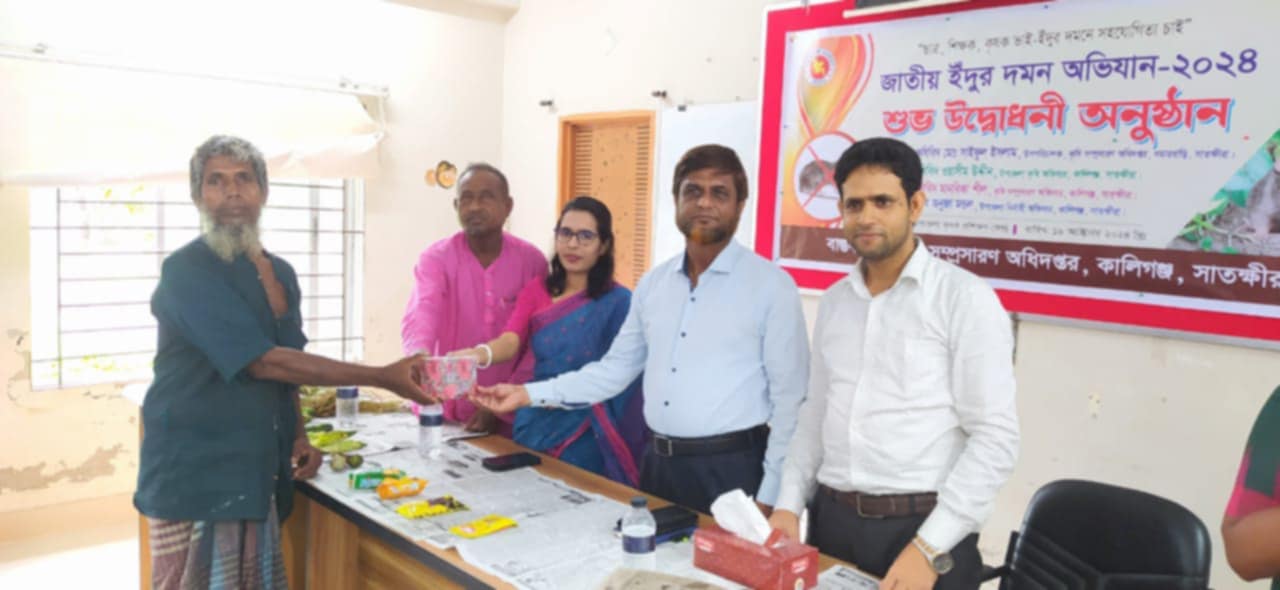Today, March 31, 2022, the U.S. Embassy in Dhaka was proud to partner with the Centre for Bay of Bengal Studies at Independent University Bangladesh to organize an academic conference on “Moving Forward in the Indo-Pacific: Bangladesh’s Role in Fostering an Open, Resilient, and Interconnected Bay of Bengal and Beyond.”
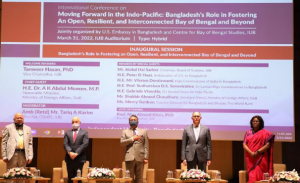 Bangladesh and the United States share different, but similar, visions for the Indo-Pacific region. We can – and do – work together to advance those areas where our visions overlap. The Honorable Prime Minister Sheikh Hasina described Bangladesh’s vision for the region at the 2021 Paris Peace Forum. She said:
Bangladesh and the United States share different, but similar, visions for the Indo-Pacific region. We can – and do – work together to advance those areas where our visions overlap. The Honorable Prime Minister Sheikh Hasina described Bangladesh’s vision for the region at the 2021 Paris Peace Forum. She said:
“The Indo-Pacific region must be an area of peace and prosperity for all. Our vision for the region is to have a free, open, peaceful, secure, and inclusive region.”
The United States wholeheartedly agrees. When President Joe Biden released the United States’ Indo-Pacific Strategy, he said:
“The future of each of our nations – and indeed the world – depends upon a free and open Indo-Pacific enduring and flourishing in the decades ahead.”
One thing is clear: People and governments of the region want more, better opportunities for all their people.They want more chances to connect – within their nations, between their nations, around the world.They want to be better prepared for crises like the pandemic.They want peace and stability.The United States’ Indo-Pacific Strategy has five key elements that will guide our long-term engagement in the region. The United States envisions an Indo-Pacific that is:
- Free and Open
- Connected
- Prosperous
- Secure, and
- Resilience
Today’s conference offers a chance to reflect on each of these pillars, on Bangladesh’s contributions to them, and how the U.S. can partner with Bangladesh in the future.
Free and Open
First, the United States will advance a free and open Indo-Pacific.This means a region where problems will be dealt with openly.Rules will be reached transparently and applied fairly.Individual countries will be able to choose their own path and their own partners.Russia’s brutal and unprovoked invasion of Ukraine is a wake-up call to the world. These ideals cannot be taken for granted, rather they must be defended.And let me be clear about one thing: the goal of defending these ideals is not to keep any country down.Rather, it’s to protect the right of all countries to choose their own path, free from coercion, free from intimidation.Bangladesh has made important contributions to this cause.For instance, by committing to the peaceful resolution of its land and maritime border disputes, Bangladesh has made the Bay of Bengal an example for the world to follow.A free and open Indo-Pacific is also a region where goods, ideas, and people flow freely across land, cyberspace, and the open seas.We will work with Bangladesh and other partners to ensure the region’s seas and skies are governed and used according to international law.
We will also seek to advance common approaches to critical and emerging technologies, the internet, and cyber space, that protect privacy and human dignity.
Connected
Second, we will continue to forge stronger connections within and beyond the region. We must work together as a community to tackle our shared problems.
Bangladesh is a committed leader to regional cooperation, as host to the BIMSTEC Secretariat, as chair of the Indian Ocean Rim Association, and as an active member of SAARC, the Colombo Plan, and more.
Bangladesh also knows the importance of helping neighbors, like through providing COVID-19 assistance to the Maldives, or supporting Sri Lanka last year with a currency swap at the height of its cash crisis.
As Ambassador, I am committed to building our bilateral partnership to tackle shared challenges together.Our ties do not just connect our governments but bridge our people.We’re deepening ties between our people through educational and exchange opportunities.Since Sheikh Mujibur Rahman’s participation in a Foreign Leaders exchange program in 1958, nearly 5,000 Bangladeshis have studied, taught, and developed professional expertise through U.S. government-sponsored exchange programs.In addition, Bangladesh is the fastest growing country in sending students to study in America. Last year nearly 8,600 students attended world-class research institutions in the United States. To the students and young scholars here today, I hope you will consider following in their footsteps.
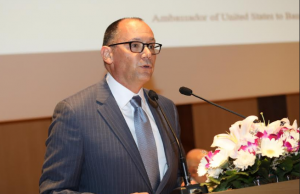 Prosperous
Prosperous
Third, we will promote broad-based prosperity, so that no one gets left behind in the 21st century.Bangladesh’s strong economic growth and entrepreneurial spirit drive the Indo-Pacific economy forward.As Bangladesh diversifies its industrial base, regional supply chains will become more resilient.And as labor rights and worker safety reforms take hold, the benefits of this growth will be shared more broadly.
The United States is the largest source of foreign direct investment in Bangladesh. As Ambassador, I commit to work with Bangladesh to build an attractive investment environment and support U.S. investors to enter new sectors for the benefit of all our people.At President Biden’s direction, we are developing a comprehensive Indo-Pacific Economic Framework, which will include shared objectives in key areas: climate and clean energy, fair trade facilitation, resilient supply chains, and the digital economy.
I look forward to working on these issues with the people and the Government Bangladesh in the coming months.
Secure
Fourth, we will bolster Indo-Pacific security.Threats are evolving. Our security approach must evolve with them.We will seek closer security cooperation with partners to tackle challenges ranging from violent extremism to illegal fishing to human trafficking.The United States is proud to partner with Bangladesh on these challenges and more.For instance, last year, we provided 10 Metal Shark Boats and 10 Defender Class Boats to the Bangladesh Navy and Bangladesh Coast Guard.
These vessels will support Bangladesh’s ability to secure its territorial waters and exclusive economic zone, counter trafficking of all types, and remain a bulwark against piracy in the Bay of Bengal.
(Resilient)
Finally, we will help build regional resilience to transnational threats.
The COVID-19 pandemic and the climate crisis underscore the urgency of this task.
Bangladesh has been a leader on both fronts.By vaccinating over 70 percent of the population with the first dose and counting, Bangladesh is safeguarding its own people and the world from the pandemic.The United States has sent more than 180 million safe, effective vaccine doses to the Indo-Pacific, including 61 million to Bangladesh alone – more doses than we have donated to any country in the world.
Bangladesh’s leadership of the Climate Vulnerable Forum has sent a powerful message to the world: we need a truly global commitment to reducing greenhouse gas emissions, including from all major emitters.
On climate, we have mobilized billions of dollars in clean energy, clean air, and climate resilience projects throughout the region. And President Biden has pledged to quadruple U.S. climate assistance to $11.4 billion annually by 2024.
Last year, we launched a $17 million flagship clean energy project in Bangladesh that will help pave the way to building affordable, reliable, and sustainable energy systems.
(Closing)
I have just outlined the five key elements of the United States’ Indo-Pacific Strategy and how Bangladesh fits in.But before I close, I’d like to focus for a moment on what the Indo-Pacific Strategy is not.
1. The Indo-Pacific Strategy is NOT a military alliance. Nor does it seek to become one.
- The Indo-Pacific Strategy is NOT about a contest between a U.S.-centric region or a China-centric region. Indeed, we view the Indo-Pacific as its own region.
- The Indo-Pacific Strategy is NOT designed to make anyone choose between countries. One of the key tenets of the strategy is that every country should be able to choose its own path, free from pressure or coercion.
In sum, the Indo-Pacific Strategy is a positive, shared vision for creating a region where all nations can thrive – Bangladesh, China, Sri Lanka, Indonesia, the United States, and each and every other county in the region.
Every defining issue of the 21st century runs through the Indo-Pacific: the climate crisis, global health, the future of technology, whether nations will be free to chart their own path.
What happens here will, more than any other region, shape the trajectory of the world in the 21st century.
That’s why it’s vital we work together as partners to achieve this common vision.

